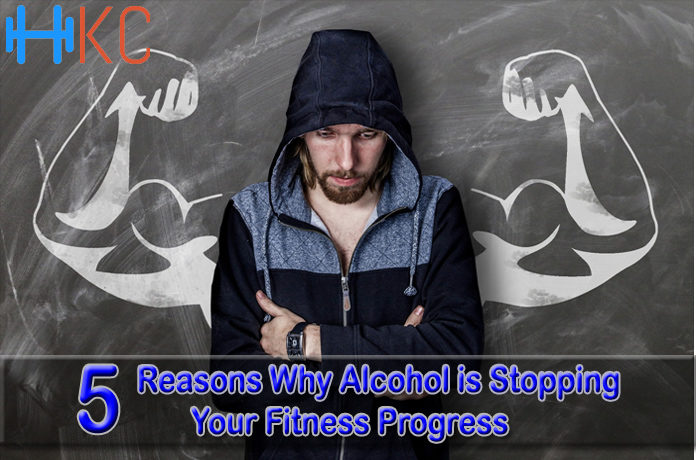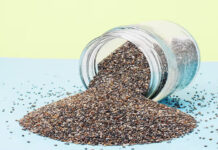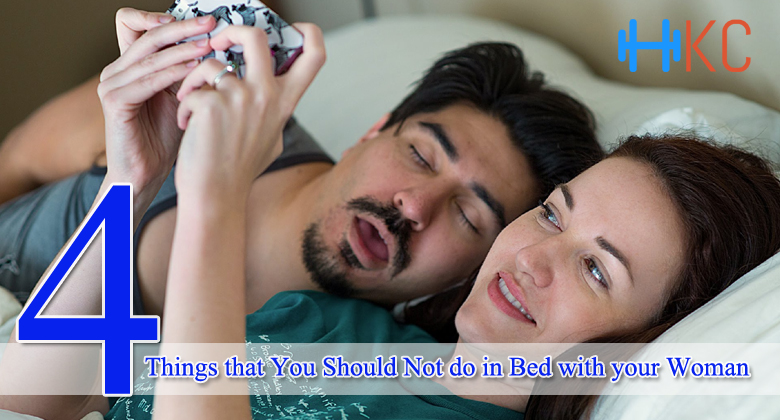After spending the majority of my youth abusing alcohol and drugs, one day it finally hit me. I had an epiphany of sorts while spending some time in jail on drug-related charges. It was there in my isolation that I had a powerful wake-up call. I had no choice other than to turn my life around, enter drug and alcohol rehab, and get sober.
My body had been breaking down, my relationships were strained, and I wasn’t making any positive progress in my life. I decided to enter a recovery program to help get myself off of drugs and alcohol for good. After I started to get sober, things rapidly started changing for the better. Stopping my consumption of alcohol and drugs made so many positive impacts in my life, it’s hard to put it all down in words.
One of the things I learned from dealing with my substance abuse was how much of an effect alcohol was having on my physical fitness. Early on in my recovery, I was looking for any possible way to replace my bad habits with good ones. Exercise seemed like a viable solution.
I began working out and trying to get in the best shape of my life. A few weeks in, I wasn’t making as much progress with as I expected and felt that I deserved. To cope, I decided to continue my drinking. I was left wondering why I was not making progress with my fitness goals. I now understand that alcohol was the main culprit.
If you are trying to lose weight or gain muscle, take a look below at the 5 reasons alcohol might be hindering your progress:
1. Alcohol Increases your Appetite
I can’t tell you how many times I would follow up a night of binge drinking with a heavy junk food meal consisting of McDonald’s, Dominos, or Taco Bell. I remember specific nights smelling the delicious vapors from the hotdog stand next to a bar I liked to frequent and giving in to my drunken hunger.
Even if you have the strongest dedication towards your fitness goals, it can all go out the window after you get intoxicated. Alcohol can definitely stop any positive fitness progress you have made by increasing your appetite and decreasing your commitment to proper nutrition.
2. Alcohol Kills your Productivity and Motivation
Have you ever gotten up with a hangover before? It’s a feeling that can’t be shaken easily. I normally found myself curled up in the fetal position in my bed, chugging Gatorade, and watching “Cops” all day. Any prior commitment that I had to be physically active or productive, like going to the gym, was pretty much forgotten on the days after I had gone out drinking.
When you drink alcohol, you are drinking a diuretic, which is a substance that helps your body get rid of fluids. It dehydrates you. That’s why after a long night of drinking, your body is in recovery mode and needs lots of hydration to recuperate. Your body can even take up to 48 hours to break the alcohol down after a night of heavy drinking. There go your gym plans for the next few days….
3. Alcohol Reduces Protein Synthesis
Protein synthesis is essentially what helps your muscles recover after putting them through an intense workout. By drinking alcohol, you are directly hindering this process from happening. I realized this when I was lifting weights almost every day and not gaining any muscle mass. After I stopped drinking and continued that same regiment, I started making huge gains.
Muscle protein synthesis is “the driving force behind adaptive responses to exercise”. When you drink alcohol, you are reducing the effectiveness of your body’s natural protein synthesis and literally stopping your muscles from growing. The dehydrated state that alcohol puts your body it is not helping with your fitness goals.
4. Alcohol Negatively Affects your Sleep
I used to think that drinking a glass of wine or a few beers before going to bed would help me get to sleep. It sure felt that way. It wasn’t until recently that I realized drinking alcohol before sleep actually negatively affects the quality of your sleep. Alcohol can even prevent you from reaching the REM phase of sleep, which is the sleep stage where your body and energy is restored.
Staying energetic and making sure your body has enough quality sleep to recover from training is another key to progressing with any fitness goals. By drinking alcohol, your sleep patterns are not reaching their full potential and you are hurting your fitness progress.
5. Alcohol is Empty Calories
When you are trying to increase muscles, get lean, or improve your cardiovascular endurance, keeping track of your food intake is absolutely vital. I’ve always tried to keep in mind that the weight of your body is directly affected by the number of calories you consume every day. Alcohol’s calories are dense (1 gram of alcohol has twice the calories of a gram of protein or carbohydrate), easily absorbed by your body, and lacking any real nutrition.
If you’re serious about getting in shape, the alcohol you drinking is not helping your cause. Also, I typically found myself drinking more as the night progressed, which meant I had pretty much given up on tracking my calorie intake. Instead of kicking back a few high carbs and high-calorie IPAs, go for two of my favorites, a healthy fruit smoothie or black coffee.
Exercise and alcohol sit at completely opposite ends of the health spectrum. Combining the two is never a good idea. I realized that the hard way when I first started working out during my recovery. After I was able to kick my alcohol addiction for good, I woke up every day feeling much more energized and pumped up for my workouts. My body transformed into what I had always envisioned myself looking and feeling like. It was an incredible sensation. I’ve now been sober for over nine years and continue to set higher fitness goals for myself. With my discipline and with the knowledge I’ve learned through my recovery, I have been able to get into great shape. I haven’t looked back ever since.
Do you think alcohol holds you back with making progress towards your fitness goals? Have you personally experienced anything mentioned above? Drop us a comment below and let us know your thoughts!














